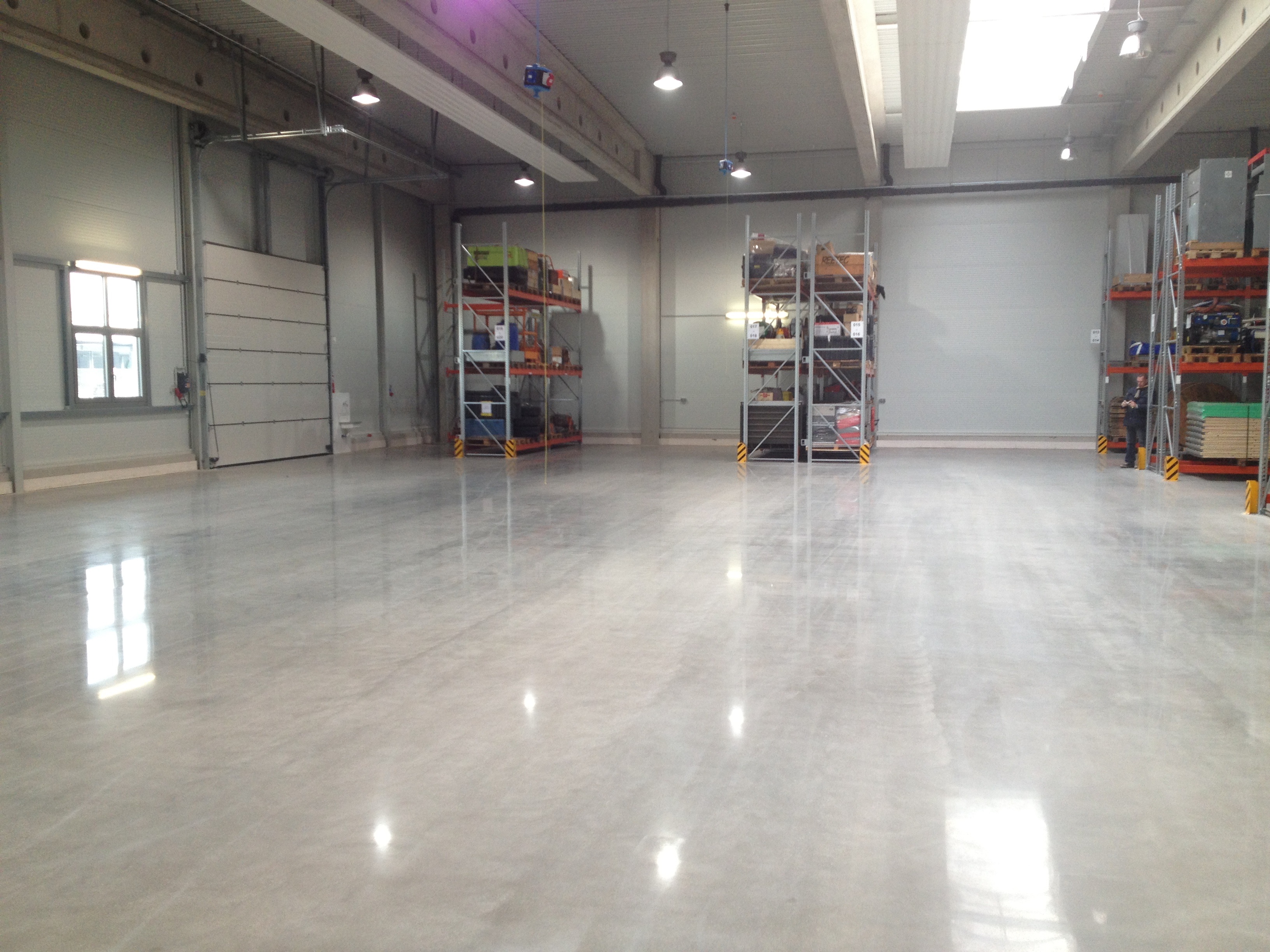When it comes to industrial floor renovation, one cannot overlook the process of concrete polishing. Polished concrete has become a top-tier solution for improving the strength and durability of surfaces.
The BECOSAN® treatment has revolutionized this practice by offering an environmentally friendly and effective alternative to enhance floor resistance. In fact, it’s an eco grind concrete polishing method that strengthens the floor while minimizing environmental impact.
In this article, we will explore the benefits of concrete polishing, highlighting the BECOSAN® treatment, as well as various types of coatings and their respective resistances.
We will also mention some industries where polished concrete’s resistance is a necessity.
Why is Concrete Polishing Advantageous?
1. Drastic Increase in Resistance
When concrete is polished, its surface becomes densified as the polishing process fills in the pores of the slab. This densification provides the floor with better resistance to abrasion. Even old and deteriorating surfaces can be strengthened through polishing.

Polishing eliminates uneven or defective coatings and reinforces the exposed slab beneath.
2. Improved Durability
Concrete polishing increases the floor’s durability, making it better equipped to withstand the wear and tear caused by heavy vehicles and forklifts’ constant traffic.
Intense traffic in industrial warehouses is the primary cause of floor deterioration. By enhancing the floor’s durability, you reduce the need for repairs, resulting in cost savings in the long term.
3. Reduced Maintenance
Polished concrete floors require minimal maintenance and are easy to clean, significantly reducing long-term maintenance costs. Regular cleaning is often sufficient to keep the surface clean.
BECOSAN® Treatment: Unprecedented Environmental Innovation
The BECOSAN® treatment is a significant advancement in the field of concrete polishing. This environmentally friendly solution enhances the resistance of industrial floors. The product penetrates deep into the concrete surface, creating a chemical reaction that strengthens the concrete’s molecular structure.
The BECOSAN® treatment allows for a significant increase in resistance, a reduction in dust, improved resistance to chemicals, and lower maintenance costs.
Different Types of Coatings for Maximum Resistance
In addition to the BECOSAN® treatment, several coatings can enhance the resistance of industrial floors, including:
1. Epoxy Coating
Epoxy floors are known for their chemical and mechanical resistance. They are often used in industries where corrosive chemicals are handled, such as the chemical and pharmaceutical industries. They also offer excellent wear resistance.
2. Polished Concrete with Exposed Aggregates
This type of polished concrete incorporates exposed aggregates on the surface, significantly improving slip and wear resistance. It is commonly used in warehouses, garages, and areas with heavy pedestrian traffic.
3. Polyurethane Coating
Polyurethane coatings offer excellent resistance to abrasion, chemicals, and scratches. They are useful in the food and pharmaceutical industries, as well as in production areas with heavy machinery in operation.
Industries Where Polished Concrete Resistance is Essential
Polished concrete resistance is essential in many industries, including:
1. Automotive Industry
Automotive repair shops and automobile production factories require floors capable of withstanding chemicals, oils, and heavy loads.
2. Logistics and Warehouses
In logistics warehouses, floors must withstand the constant circulation of forklifts, pallets, and heavy goods.
3. Food and Pharmaceutical Industry
These industries demand floors resistant to chemicals, liquids, thermal shocks, and wear.
Conclusion
Ultimately, investing in high-quality industrial factory flooring is key to achieving these benefits in any facility.
